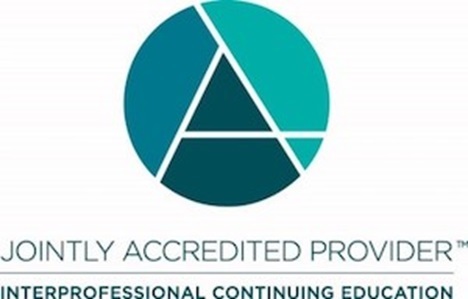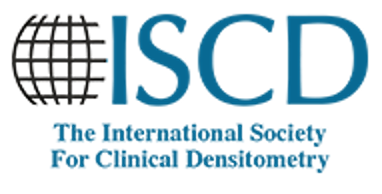
ISCD Learning
October 2025 - DXA Body Composition Analysis
Includes a Live In-Person Event on 01/06/2026 at 12:00 AM (EST)
- Registration Closed
Course Date
October 4, 2025, 10am - 2pm Eastern Time (NYC/USA)
Course Description
This course focuses on increasing the knowledge and competence of clinicians and other healthcare professionals to help them successfully use DXA body composition analysis in the management of obesity, geriatric sarcopenia and other low muscle mass states, general health and pediatric skeletal disease. The inclusion of case studies will reinforce the knowledge gained and allow for application in the diagnosis, treatment and therapies of patients presenting with low bone mineral density.
Target Audience
The content is designed for healthcare providers responsible for reading and interpreting DXA scans, including specialists and generalists working in family medicine, general and internal medicine, rheumatology, endocrinology, obstetrics/gynecology, radiology, physical and occupational therapy, and research, as well as technologists.
Learning Objectives
After attending the course, participants should be better prepared to:
- Identify proper DXA technology for body composition analysis of fat, lean muscle and bone mass.
- List other methods of body composition analysis used in the clinical setting.
- Differentiate reference values and indices.
- Identify limitations of reference values and indices.
- Summarize scan acquisition for adult and pediatric patients.
Method of Participation
This activity will be offered through zoom, allowing the learner to watch and ask questions in a live format on October 4, 2025. The course will NOT be recorded for future viewing, so attendees must be present during the scheduled times. At the end of the activity, learners will be asked to evaluate the activity online and then claim credit and print certificates. Participants will have 90 days from the activity end date to complete the activity survey and claim continuing education credit.
Rates
Cancellation Policy
Attendee Cancellation Policy All changes in registration must be made in writing to education@iscd.org. Cancellations received 30 days prior to the start of the program are eligible for a full refund minus a $50 administrative fee. Cancellations received less than 30 days prior to the start of the course will not be refunded.
Course Changes or Cancellations ISCD reserves the right to cancel the program, change dates and/or meeting location. If a program is canceled, all program fees will be refunded automatically unless the registered participant elects to transfer to another program. Participants will be notified of any changes within 21 days of the course start date.
ACCME Joint Accreditation Statement

In support of improving patient care, this activity has been planned and implemented by Amedco LLC and ISCD. Amedco LLC is jointly accredited by the Accreditation Council for Continuing Medical Education (ACCME), the Accreditation Council for Pharmacy Education (ACPE), and the American Nurses Credentialing Center (ANCC), to provide continuing education for the healthcare team.
AMA PRA Category 1 Credit(s)™
Amedco LLC designates this live activity for a maximum of 3.75 AMA PRA Category 1 CreditsTM for physicians. Physicians should claim only the credit commensurate with the extent of their participation in the activity.
ASRT Credit Designation:
This activity is approved by ASRT for 4.5 Category A Continuing Education credits.
Deadline to Claim Credit
Participants will have 90 days from the live activity end date to complete the activity survey and claim continuing education credit.
Schedule October 4, 2025 - All times eastern (NYC/USA)
John A. Shepherd, PhD, CCD
Professor/Chief Scientific Officer
University of Hawaii Cancer Center, Honolulu, HI
Dr. Shepherd is a Researcher/Professor at the University of Hawaii Cancer Center, a Fulbright Scholar, a Fellow of the American Institute for Medical and Biological Engineering (AIMBE), and a former President of the International Society for Clinical Densitometry. He received his PhD in Engineering Physics from the University of Virginia and then completed a Postdoctoral Fellowship in Biophysics at Princeton University. From there he went on to develop body composition and bone density algorithms for a major women’s health company and his patents are the basis for the accuracy of that company’s body composition algorithms. He then joined the Radiology Department of the University of California San Francisco and led his own research group for 19 years studying a wide variety of biomarkers for breast cancer, obesity and osteoporosis from medical imaging using advanced machine learning techniques. For the past 5 years, he has been with the University of Hawaii Cancer Center and is currently their Chief Scientific Officer. He also directs the UH Artificial Intelligence Precision Health Institute and the Hawaii Pacific Islands Mammography Registry. He has been continuously funded from the NIH since 2005, led 6 R01-funded studies, published over 350 peer-review publications that have been referenced over 23,000 times, and lastly is an avid surfer and island ridge hiker!
Greg Yardley, MSRS, RT(R), CBDT
Sr. Medical Radiology Technologist and Researcher
NASA Bone Mineral Laboratory
Greg Yardley works as a SR. Medical Radiology Technologist and researcher in the NASA Bone Mineral Laboratory and NASA/JSC medical clinic for KBR in the government solutions division. His job requirements are performing and analyzing Dual Energy X-ray absorptiometry (DXA) exams on both retired and active Astronauts. He also extracts, records, and aids in bone density interpretation and distributes bone data from DXA, Computed Tomography (CT), and Magnetic Resonance Imaging (MRI) devises. Greg also performs diagnostic medical X-rays for the NASA/JSC Flight medicine and occupational health clinic.
Greg began his healthcare career as an Emergency Medical Technician (EMT). He then furthered his medical education and received his certification as a registered Radiology Technologist. Greg has worked as a Radiology Technologist in a trauma level 1 hospital, level III hospital, urgent care, and multi-specialty clinic. At the time of his graduation Greg had also received extensive training not only in X-ray but also DXA, CT, and Ultrasound. In 2011, just previous to his current job, Greg worked as a Bone Density Technologist at a multi-specialty medical clinic where he performed and analyzed over 3000 DXA scans a year on every type of patient imaginable while also running the day-to-day operations of the Osteoporosis center.
Statement of independence
The ISCD maintains a policy on the use of commercial support, which ensures that all educational activities sponsored by the ISCD provide in-depth presentations that are fair, balanced, independent, and scientifically rigorous. ISCD requires faculty, planners, managers, and other individuals and their spouse/life partner who are in a position to control the content of this activity to disclose any real or apparent conflict of interest they may have as related to the content of this activity. All identified conflicts of interest are thoroughly vetted by ISCD for fair balance, scientific objectivity of studies mentioned in the materials or used as the basis for content, and appropriateness of patient care recommendations. Individual disclosures are included in the course material. No Commercial Support has been provided for this activity
Disclaimer
The information and suggestions presented at the courses, seminars and other programs sponsored by ISCD and other collaborating societies are subject to change and therefore should serve only as a foundation for further investigation and study. Any forms presented at our seminars or programs are samples only and are not necessarily authoritative. All information, procedures, and forms contained or used in such seminars or programs should serve only as a guide for use in specific situations.
Disclosure of Unlabeled Use
This educational activity may contain a discussion of published and/or investigational uses of agents that are not indicated by the FDA. ISCD does not recommend the use of any agent outside of the labeled indications. The opinions expressed in this educational activity are those of the faculty and do not necessarily represent the views of any organization associated with this activity. Please refer to the official prescribing information for each product for a discussion of approved indications, contraindications, and warnings.
Privacy & Confidentiality Statement
The ISCD will record the learner’s personal information as provided on evaluations to allow for the issuance and tracking of CME/CE certificates. The ISCD may also track aggregate responses to questions in activities and evaluations and use these data to inform the ongoing evaluation and improvement of its educational program. No individual performance data or any other personal information collected for evaluations will be shared with third parties
Attendance Cancellation Policy
All changes in registration must be made in writing to education@iscd.org. Cancellations received 30 days prior to the start of the program are eligible for a full refund minus a $50 administrative fee. Cancellations received less than 30 days prior to the start of the course will not be refunded.
Course Changes or Cancellations
ISCD reserves the right to cancel the program, change dates, how the course is taught, and/or meeting location. If a program is canceled, all program fees will be refunded unless the registered participant elects to transfer to another program. Participants will be notified of any changes within 21 days of the course start date.

